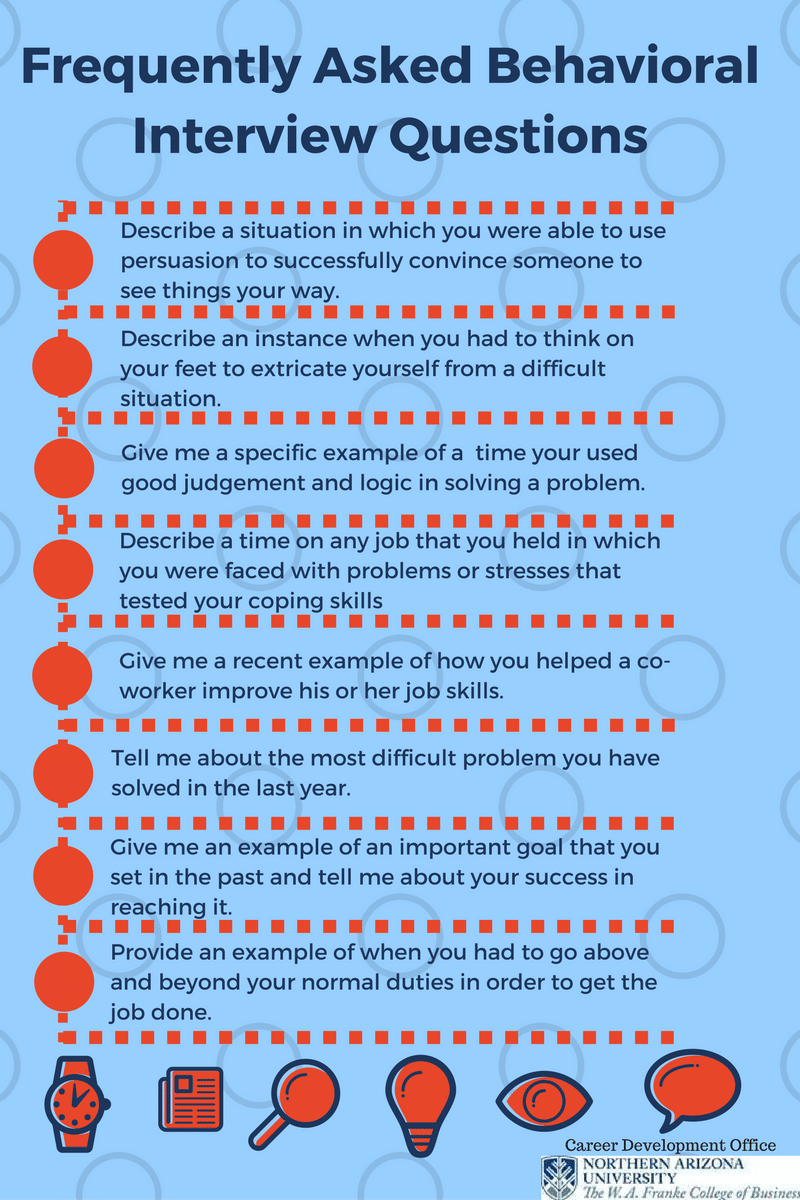When looking for your dream job, the only thing between you and your job is the interview process. Every job interview includes behavioral questions to evaluate your personality, way of thinking, and response to different situations.
Right answers help the interviewing team understand how you deal with different challenging situations while at the workplace. Your goal should be to highlight your self-growth, self-awareness, and self-reliance. However, keeping your answers realistic is the best strategy to show your self-confidence.
To help you prepare better for your interview, we have written the most asked behavioral questions and their best possible answers that you can review to explain your personal experience in an interview
What are behavioral questions?
In behavioral questions, the interviewee is presented with a situation and asked what action he took in the past to handle it?
It requires the interviewees to share real-life examples of situations where they had to use their skills. The answers should be verifiable and concrete evidence of how the candidate managed the problem for a successful outcome.
The comments behavioral questions are related to these groups:
- Problem Solving
- Teamwork
- Adaptability
- Motivation
- Creativity and analytical skills
- Overcoming stressing situations
- Biggest Failures
- Leadership
4 Behavioral questions commonly asked and sample answers
Tell me about your experience of how you have worked under pressure?
This question is asked in almost every interview because every job involves some stressful situations. The interviewer is interested in knowing how you respond to that situation and what the outcome was.
Example:
I was working on a project which was due in a week. My supervisor came to me and told me that I have to speed up the process and submit the project within 3 days. It was a challenging situation, but I managed the situation pretty well.
I devised a new plan, divided the tasks, and added extra working hours to the schedule. Successfully, we got the job done right on time. I think my effective task allocation saved us all and helped in the successful completion of the project.
➡LEARN MORE: How to Prepare for a University Interview
Have you conflicted with your peer, and how you resolved the matter?
In a workplace with a lot of people, conflicts are common. The interviewer wants to see how you handle the disputes and what strategy you follow.
Example:
We had a team member who was always ready to help others. However, team members felt that they are micromanaged and are unable to complete their tasks in their way. Instead of being ganged up, I decided to talk to her myself. I discussed the best way she can use it to help others.
We finally decided that she will help others but only when asked and let others do what they are doing.
How you set your goals?
This question helps the interview know how you set your goals and what is your plan to accomplish?
Example:
I started a job at a restaurant as a delivery guy. I always wanted to be a chef, so I decided that I would learn all I could and improve my cooking skills at this time. I was determined to get a job as a chef even with less pay. I also started saving money for the culinary academy.
So, when I apply for a good chef position, I would be a competitive candidate with years of experience.
Give me the example of a situation when you made an unpopular decision and how you handled it?
The interviewers want to know how you handle such a situation and how you implemented a new policy.
Example:
I worked in an environment where certain employees were used to getting more opportunities while others were always left behind. I introduced a policy where every decision has to be approved by management based on the previous opportunities given an employee’s work progress.
This helped the employees who never got the chance to come forward and benefit the company with their fruitful ideas.

The essential springboard into the job market for school leavers, students and graduates.
The AllAboutGroup have worked across more than 1000 campaigns with HR teams from over 250 firms over the last decade as their partners to help them solve problems across all parts of the recruitment process.


